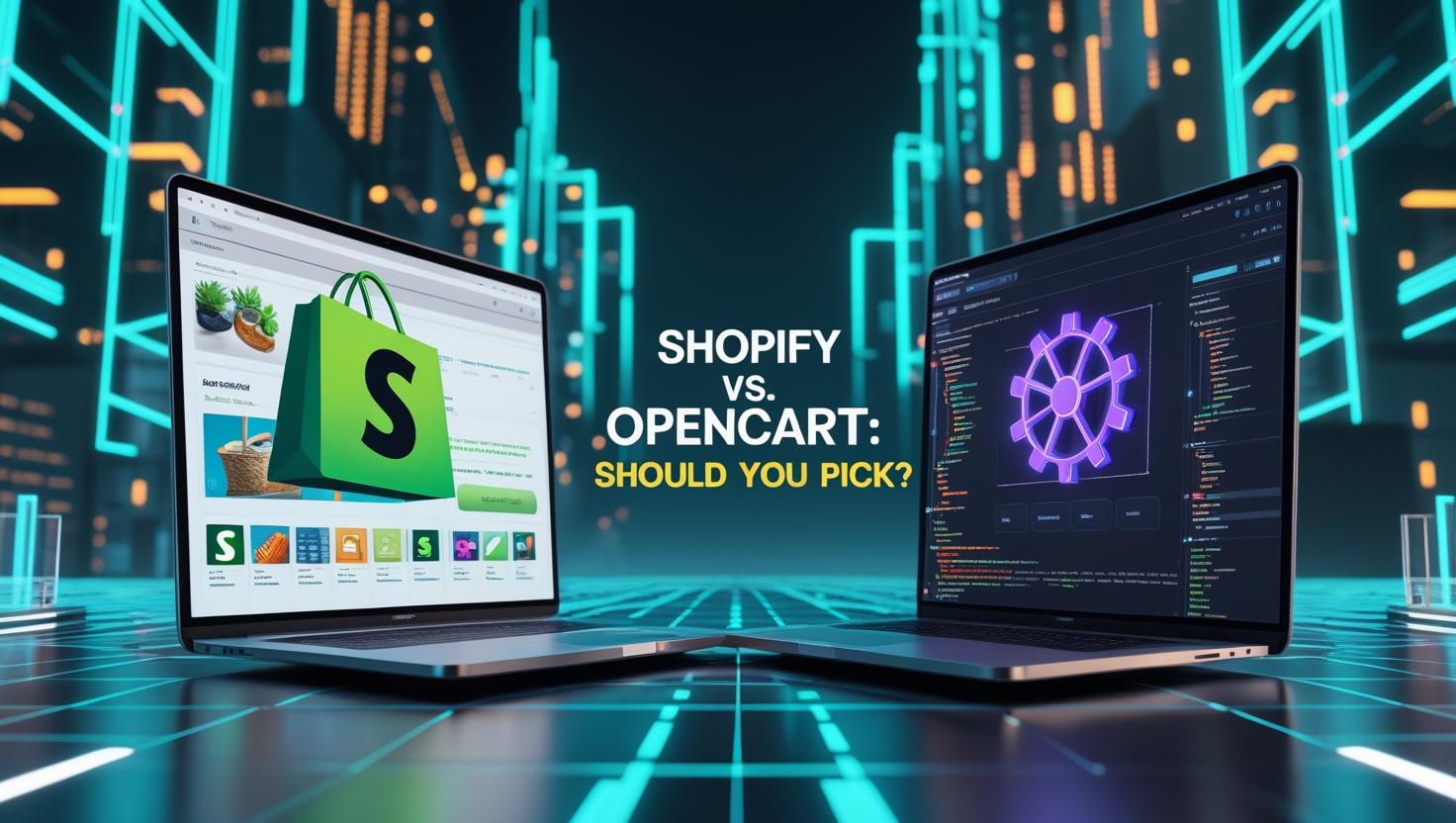Selecting the right eCommerce platform is one of the most critical decisions for online business owners. A reliable platform sets the foundation for growth, performance, and customer experience. Among the many available choices, Shopify and OpenCart stand out as two strong contenders. Shopify is known for its simplicity and all-in-one approach, while OpenCart offers unmatched flexibility and open-source freedom. In this guide, we compare both in detail so you can make an informed decision.
Overview of Shopify
Shopify is a fully hosted eCommerce platform that allows anyone to launch and scale an online store without advanced technical skills. Established in 2006, it has become a leading solution worldwide, serving millions of entrepreneurs. With Shopify, hosting, security, and updates are all included, enabling business owners to focus purely on sales and growth.
Key Features of Shopify
- Cloud-based, hosted solution
- 24/7 professional customer support
- 100+ free and premium themes
- Shopify Payments and 100+ gateways
- App store with over 8,000 plugins
- SEO-friendly structure and tools
- Scalable from startups to enterprises
Overview of OpenCart
OpenCart is a free, open-source eCommerce platform that provides complete control and flexibility. Released in 2010, it is particularly popular among developers and businesses that want deep customization. Unlike Shopify, OpenCart is self-hosted, which means users manage hosting, security, and updates on their own. The platform’s lightweight code makes it efficient, and its open-source nature allows for limitless customization.
Key Features of OpenCart
- Free to use and open-source
- Multi-store management from one dashboard
- Large library of extensions and modules
- Multi-language and multi-currency support
- Customizable architecture with PHP, HTML, and CSS
- Strong community and developer support
No mandatory subscription fees
Ease of Use
When it comes to ease of use, Shopify leads the way. Its drag-and-drop interface allows store creation without coding. The platform takes care of hosting, SSL, and automatic updates, reducing the workload for beginners.
OpenCart, on the other hand, requires technical knowledge. Users must install the software, manage hosting, and handle updates. While manageable for developers, beginners may find it more challenging compared to Shopify’s simplicity.
Design and Customization
Shopify
Shopify offers over 100 mobile-friendly themes, designed for professional appeal. Users can easily personalize layouts using the built-in editor, while developers can make deeper changes using Liquid code.
OpenCart
OpenCart provides more design freedom. Thousands of templates are available, but most require manual installation. Since it’s open-source, businesses can edit every detail of their store with PHP and CSS. This makes OpenCart ideal for companies that want full customization control.
Performance and Speed
Shopify is optimized for speed and scalability. It uses fast global servers, CDN integration, and automatic scaling, ensuring reliable performance even during high-traffic spikes.
OpenCart’s performance depends on your hosting provider. With premium hosting and proper optimization, OpenCart can achieve great speed, but poor hosting setups may result in slower load times.
Payment Gateways and Fees
Shopify supports 100+ payment gateways, including PayPal, Stripe, and its own Shopify Payments. Using Shopify Payments removes extra transaction fees, but third-party gateways incur additional charges (0.5%–2%).
OpenCart supports a wide range of regional and global payment extensions. Since it’s open-source, there are no added platform transaction fees—only charges from the payment provider. This makes OpenCart more cost-effective for high-volume stores.
SEO and Marketing Tools
Shopify comes with built-in SEO features, including editable meta tags, clean URLs, alt text for images, and a blog feature. It also integrates with marketing apps for email, social media, and advertising campaigns.
OpenCart supports SEO-friendly URLs and Google Analytics integration. However, advanced SEO functions usually require installing third-party extensions. While effective, it requires more effort compared to Shopify’s ready-to-use tools.
Extensions and Integrations
- Shopify App Store: 8,000+ apps for everything from dropshipping to customer support. However, many come with monthly costs.
- OpenCart Marketplace: Thousands of free and paid extensions. Businesses can also create custom modules without being tied to recurring fees.
Security
Shopify includes PCI compliance, SSL certificates, and fraud prevention tools as part of its package. Users don’t need to worry about securing the store themselves.
With OpenCart, security is manual. Store owners must handle SSL installation, software updates, and security configurations. While powerful, it requires technical knowledge or dedicated developer support.
Pricing Comparison
- Shopify: Pricing starts at $39/month for the Basic plan, $105/month for the standard Shopify plan, and $399/month for Advanced. Costs increase with apps and transaction fees.
OpenCart: Free to download and use. Costs include hosting ($5–$50/month), SSL, and extensions. While cheaper upfront, expenses vary depending on customization and support needs.
Support and Community
Shopify provides 24/7 live chat, phone, and email support, along with a robust knowledge base and expert marketplace.
OpenCart relies mainly on community forums, documentation, and developer help. Official paid support is available but limited. It’s best suited for businesses with technical resources.
Which One Should You Choose?
- Choose Shopify if you want an easy-to-use, fully managed solution with premium support. It’s perfect for entrepreneurs who value speed, security, and scalability without technical headaches.
- Choose OpenCart if you want a flexible, customizable platform with no subscription fees. It’s best for developers or businesses that want total control over their store.
Final Verdict
Both Shopify and OpenCart are strong eCommerce platforms, but they serve different needs. Shopify is the go-to solution for beginners and businesses that want convenience and professional support. OpenCart is ideal for those seeking freedom, customization, and lower costs in the long run.
Ultimately, your choice depends on whether you prioritize simplicity and support (Shopify) or flexibility and control (OpenCart).
Follow Us | Our Services | Contact Us | Linkedin | Instagram







